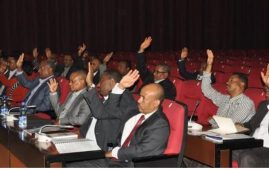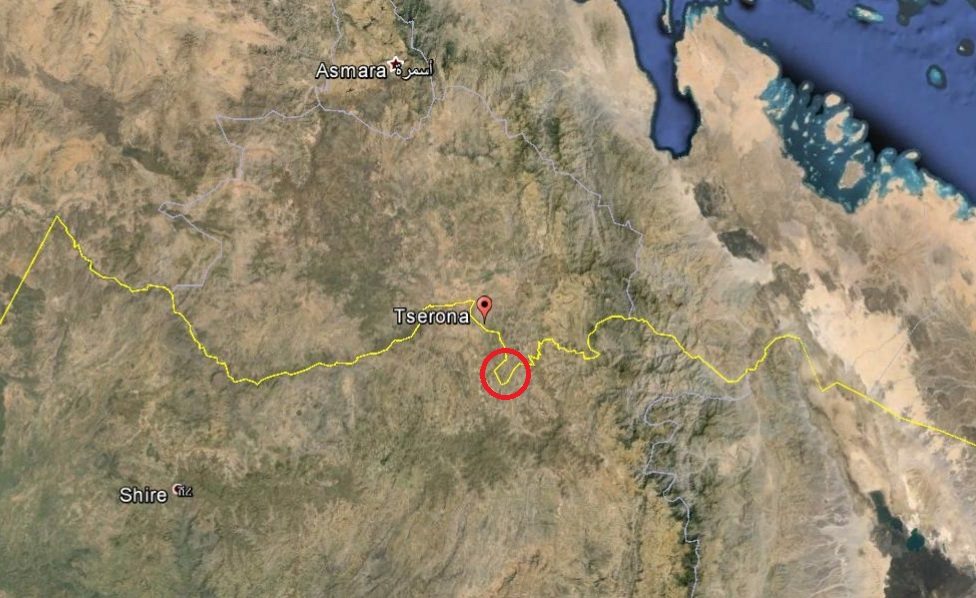Eritrea is 21. This is the time when people normally “come of age”, and assume responsibility for their own actions. Not so Eritrea. For all its youth, it has seen a lot, mostly bad. Its precocious talent for “trouble-making” was there for all to see from the start. Its leaders hardly wasted any time on the kinds of mundane exercises in which most governments indulge, including diplomatic niceties or peaceful neighbourly relations. Eritrea, we were told, was not going to settle for diplomacy and foreign relations as we know them. The sense of euphoria that attended Eritrea’s emergence as a tough-talking, rabble-rousing, independent state was palpable – a new chapter of history was being ushered in with the birth of an independent Eritrea.
Of all the promises its leader made about Eritrea, then and later, the only thing that has certainly and unequivocally been proven is its “uniqueness”. Eritrea has, indeed, trodden a unique path. Its leaders have always taken pride in having once been colonized by a European country. This incidentally was actually responsible for the creation of the very concept of an Eritrean territorial identity. To the extent that the very name Eritrea was an Italian creation, it might not be all that surprising that its current leaders feel some sentimental attachment to that part of the past. What makes their pride unique to Eritrea is the fact that Eritrea’s leaders take an equal measure of gratification in the fact that they owe their independence to their 30 years struggle against “Ethiopian colonialism”.
Eritrea’s uniqueness has also been evident in the larger-than-life ambition with which its leaders weighed down their nation when they boldly declared that they would make Eritrea into an African Singapore in less than ten years. By any standards this meant telescoping decades into years. Even more, the leadership’s bizarre economics meant that this idea was supposed to be achieved with unquestioning help and abundant resources from neighboring countries which were simultaneously being caricatured as pliant slaves. It all sounded both unrealistic and supremely condescending, underlining the perennial penchant Eritrea’s leaders have for punching above their weight.
Speaking of this, Eritrea’s first order of business, once its de facto independence was sorted out with the fall of the Derg in 1991, was immediately to inculcate in the minds of its nationals a fundamental sense of “siege mentality” as the necessary condition for maintaining Eritrea’s independence. What was unique about this was that it was wholly contrived and totally uncalled for. It was coupled with the ludicrous even grotesquely obsessive desire of Eritrea’s leaders to create enemies that led to their unsolicited aggression against literally all their neighbors. The subsequent and wholesale securitization of life in Eritrea, originally meant perhaps to serve as a safeguard against any possible encroachment on Eritrea’s independence, has over 21 years taken on a monstrous life of its own. Now it even threatens the very independence it was supposed to protect.
Another measure of Eritrea’s uniqueness can be found in a situation in which even priests and monks are indiscriminately press-ganged into the army in the name of national service, an endless national defense exercise in which the youth and many of their elders up to the age of 55, fritter their lives away in trenches.
In normal political language, ‘governments serve their people’ or at least pay lip service to the idea. This is even the case in totalitarian states where pretension has no place. However, in the freakish political experiment that is Eritrea, it is not entirely unusual to hear people in the media say that they owe everything to their government and that "they would do every thing to please their government"; some in the Diaspora, even citizens of Sweden or the US, will say they owe everything to their all-knowing, omnipresent government. The contrast with the only leader Eritrea has known in its 21 years of existence is marked. He makes it a habit to criticize his people as ‘spoilt’ simply because they dare to make the slightest of demands for the barest needs of existence. It’s more a case of “the people exist to serve the leader while the leader lives to insult his people”.
Hardly surprisingly, the nation’s propaganda machine goes to great lengths to deny any rumours of the president’s failing health while keeping total silence as its youth are dying by scores trying to flee from the repressive regime they face at home. It’s hardly astonishing then that this same propaganda machine which has long made saber-rattling an art form has kept silent even when the regime’s forces are given a severe beating as proportionate punishment for persistent efforts to export terror to neighboring countries.
At 21, Eritrea still continues to baffle many, but what one might assume to be miscalculations is in fact normal behavior for the leadership in Asmara. Asmara likes to portray itself as the victim of an “imperial conspiracy” spearheaded by US administrations past and present. If its leader’s remarks are any guide, Eritrea is the only cold-war left-over where the CIA continues to play hide-and-seek. Hearing President Isaias tell it, Eritrea is the last bastion of defiance against imperialism, and the west in general is working together with the CIA to snuff off Eritrea’s young self-reliant system.
Reality is rather different. It has become very clear that the entire so-called "resolute rebuff", the resistance against the US, is not what is made out to be – the fight to preserve Eritrea’s independence, or preserve the state. That is under no threat external or otherwise. The regime’s own activities have nothing to do with preserving Eritrea’s independence. They are entirely dedicated to one thing: prolonging the life span of a one-man totalitarian regime beyond its long-overdue sell-by date.
Source: A Week in the Horn – June 15, 2012. Originally titled ‘Eritrea at 21: still refusing to “come of age”’.
*****************
Check the Eritrea archive for related posts.





